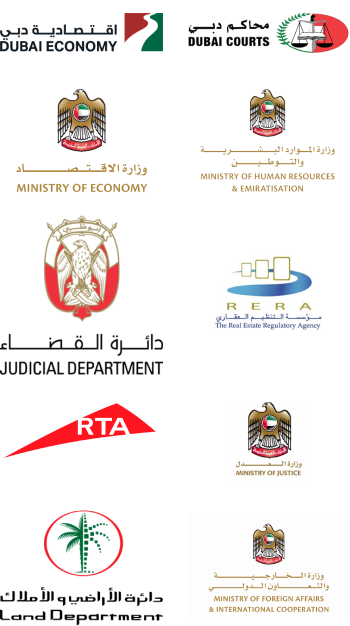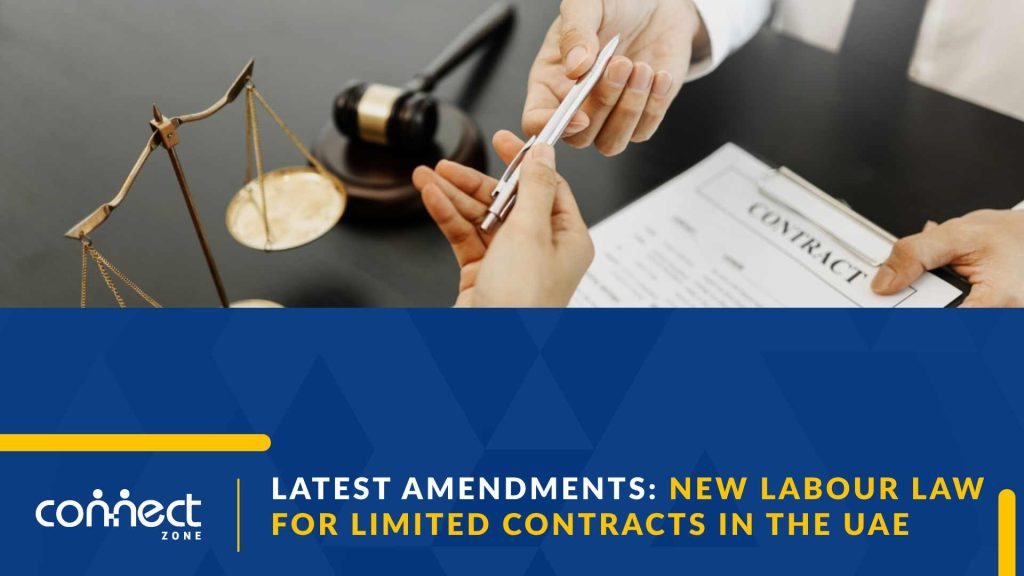Business Setup in UAE & Company Formation.
Free Zones & Mainland
Find Your Desired Business!
Dubai - Abu Dhabi - Ajman - Sharjah - Ras Al Khaimah - Umm Al Quwain - Fujairah
Get Free Consultation Today!
Make an appointment with our team and receive a free consultancy meeting call with us.
Everything You Need For Company Formation in the UAE!
Connect Zone: We are you all-around partner for easy business setup in the UAE. Our team takes care of the difficulties around company formation in the UAE, guaranteeing an easy and efficient process from beginning to end.
PRO Services
Our team can efficiently handle the difficulties of dealing with licenses, visas, permits and other documentation in the UAE for you.VAT & Tax Consultancy
Connect Zone’s team will give you the advice and support you need to deal with the Value Added Tax and other taxing guidelines in UAE.Freelance Visa
With us, you will be able to streamline your freelance visa application process and develop your freelancing career in the region with no problem.Business Centers
We help you establish your headquarters in the ideal business center according to your needs and demands, guaranteeing a smooth process.Find out your
Business Setup Cost
Get a clear estimate of the investment needed to start your business. Plan for success with accurate financial insights.
Facilitating Seamless Business Setup in the UAE through Connect Zone's Advantages
Accounting
Payments and invoices can be difficult to deal with especially for foreign investors and owners. You can easily delegate these accounting tasks in this area as a supervisor. In this way, you can get the support you require to improve practices and reduce the ordinary problems. Our team is here to help you with your accounting requests and take this weight out of your shoulders. Thus, you can keep your acquiescence and run your commerce legally in the region.
VAT Registration
It can be daunting to do your own Value Added Tax registration as a foreigner when establishing in the UAE. as a business owner, you must follow different regulations to abide by the authorities. However, if you find professional support, you can forget about the hassles of dealing with these particular tasks. Having a team that specializes in VAT and other tax regulations can change your life as an investor. We can give you the support you need in this area!
Bank Account Opening
Opening a bank account can be a very problematic practice for financiers and businesspersons. Principally, if they are foreign and do not entirely comprehend the language. To deal with this issue, you can find banking experts that have the indispensable skill to go through this route speedily. Our team of experts, can give you the assistance you need to choice the ideal banking organization for your needs, submit the requests, collect the requirements, and more.
Medical & Emirates ID
The UAE has different permits, licenses, and paperwork for those looking to move to the region to start a business. Two of these documents are truly essential when investing in the area, these are the medical and Emirates ID. Going through the process of obtaining these two IDs can be difficult if you do not have the right type of help by your side. Selecting the ideal team to help you navigate this step can save you time and money.
Health Insurance
Having health insurance in the UAE is mandatory for everyone, especially for foreigners. So, finding insurance support for your needs is essential. It is vital to guarantee that your family members or employees have the correct insurance. Hiring professional insurers can beneficiate you as you can select the perfect insurance that covers every single one of your needs. Allowing you to find the best deals and even save money in the process.
Business Centre
Finding the ideal workspace for a new business in a foreign land can be a very difficult tax. From the paperwork to establishing yourself in such a vibrant city can be very haunting. This is why finding the perfect partners for this quest is essential. With business centre professionals, you can have a wide variety of workspace alternatives to choose from. Just select the ideal office space for you and let professionals handle the rest.
We work closely with local Government Services



Opportunities that the UAE presents for Company Formation
Flexibility in UAE Regulations:
Investor-Friendly Government Policies:
0% Personal Income Tax:
Global Connectivity to 17+ Countries:
Modern Business Setup Facilities:
The Only Portal In
UAE to Setup Your Company
Exclusive Gateway to Seamlessly Establishing Your Business in UAE
Most frequently chosen zones for business setup

Meydan Free Zone
Empower your business with a prime location, exceptional facilities, and a supportive ecosystem for success

Experience gateway to limitless opportunities in a progressive free zone
Facilitating the Business Setup Process in the UAE with Connect Zone's Simplified Approach

Identify the Business Goals
We provide consultation to identify the customer’s objectives and preferences regarding their business. Consequently, customizing our company formation plans according to their individual needs.

Legal Expertise & Compliance
Obtain the support to get the documents ready for your business formation. With our legal expertise, you can streamline the process and forget about non-compliance.

Documentation and Paperwork
Obtain the support to get the documents ready for your business formation. With our legal expertise, you can streamline the process and forget about non-compliance.

Company Structure and Licensing
Obtain the support to get the documents ready for your business formation. With our legal expertise, you can streamline the process and forget about non-compliance.

Location Selection For Office
Obtain the support to get the documents ready for your business formation. With our legal expertise, you can streamline the process and forget about non-compliance.

Visa and Immigration Support
Obtain the support to get the documents ready for your business formation. With our legal expertise, you can streamline the process and forget about non-compliance.

Banking and Financial Services
Easily open your bank account and receive the support of professionals for your process and other financial responsibilities when opening a company in UAE.

Government Relations
Easily open your bank account and receive the support of professionals for your process and other financial responsibilities when opening a company in UAE.

Cultural Integration Guidance
Receive the necessary insights into local business etiquette and culture. We assist our clients in creating a strong positive relationship within the local market.
Testimonials




Exploring trends and insights
Find the most recent updates and insights regarding UAE’s business market. We offer valuable expertise and details, from setup guides to articles, keeping you up-to-date about the ever-changing business landscape in the UAE.
- April 22, 2024
- 5 min read
The UAE Golden Visa program is extremely interesting for any entrepreneur and investor from around
- April 19, 2024
- 5 min read
An entry permit is an important document for foreigners who want to travel to the UAE, either
- April 16, 2024
- 5 min read
Understanding the new labour law for limited contract in UAE is a must if you want to
Frequently Asked Questions
- Construction
- E-Commerce
- Travel and tourism
- Real estate
- Consultancy
- Beauty salon
Yes, foreign investors can easily establish in the region.
The cost varies.
Yes, with the right kind of support you can make the most out of the incentives of having a local business.
- Tax flexibilities
- Top-notch infrastructure
- Access to markets
- Networking
- Business-friendly regulations
By providing different initiatives and programs to those new businesses that support the Emirate workforce and UAE investment.
Mainland companies require external approvals from different authorities before setting up. However, free zone companies only require the approval from the local regulating body. Likewise, free zone businesses can freely trade with outside countries and free zones; Mainland businesses can trade with other cities in the UAE and oversea companies.
- Commercial license
- Industrial license
- Tourism license
- Agricultural license
- Professional license
The local sponsor system and the service agent agreement are two fundamental aspects of company formation in UAE. The service agent agreement applies to some types of licenses, like professional licenses or subsidiaries of oversea companies. The agent, receives a fee to act as a bridge for certain administrative dealings with the local government. However, they do not own a share in the company or receive profits or commission. On the other hand, the local sponsor system is for the LLCs and sponsors usually own 51% of the business.
- LLCs
- Joint stock company
- Branches
- Subsidiaries
- Sole proprietorship
- Free zone companies
- Civil company
- Partnership
No, you can start your local business without a physical office in the UAE.
The local digital infrastructure is ideal for those looking to establish their online businesses in the area.
By improving your market insight, pointing out and dealing with obstacles, providing directions for marketing efforts, and helping with other factors business consultants can give you complete support.
Yes:
- Public joint stock company: AED 10.000.000
- Private joint stock company: AED 2.000.000
- Partnership: AED 500.000
- LLCs: AED 300.000
The difference between UAE free zones is that each one of them has its own business activities that the government allows.







